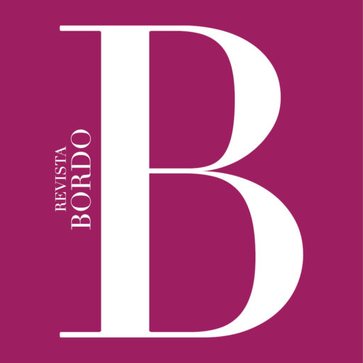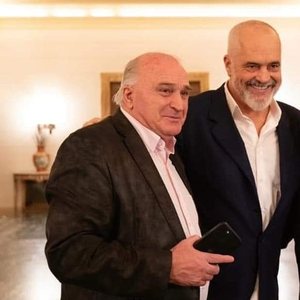Interviewed by Olsi Kolami
The famous Italian Master dedicated a musical poem to the legendary hero Gjergj Kastrioti Skanderbeg
It’s hard to talk about such a complex and interesting figure as that of Master Massimo Palumbo, a unique personality in modern times. He is one of the artists with a golden career highlighted by The New York Times, The Washington Post, Corriere Della Sera, Gramafon, Le Monde, El Pais, The Australian, therefore only meeting him is a pleasure for me.
Instead of listing his artistic biography, I can say these words: An excellent pianist, a great conductor, genius composer, genuine scholar of baroque music and antique and modern history; let me say: A character who in every field does not ever fall in banality.
Dear Master, I wish to thank you for this meeting since I know that you give very few interviews. In the first place, I would like to ask you: Why a poem dedicated to Skanderbeg and how did you think of composing such a piece?
If you allow me, I will first answer the second part of your question: Writing music nowadays is like creating something when everything had been created before. Contemporary music, which means music being composed at present, is so incomprehensible and indecipherable that it is not possible to judge whether it is a good music or not, because I am extremely convinced that the musical language was over a long time ago. My compositions are a contemporary way of writing, which is comprehensible to the public.
I have chosen Skanderbeg’s figure because the historical heroes have fascinated me in good and in bad with their insistence to move their ideas forward …
Would you give us more details about this poem that represents a legendary figure for us, Albanians?
It is a poem for a solo violin, string orchestra and percussion that has been already completed and titled “War Diary of Skanderberg”. Like many commanders or generals in antiquity such as Alexander the Great, Julius Caesar, De’Belluum Galico, etc., I imagined that Skanderbeg also had a written or imaginary diary about everything that happened during battles and periods of peace. The main theme of the piece is a dedication in honour of Christian origins in Albania, and this brings to my mind Gregorian melodies of the 1100s.
Why did you choose violin as the principal instrument?
In my opinion today you have a virtuoso violinist, Suela Mullaj of Albanian origin and Italian citizenship, who is considered by international criticism as one of the most valued musicians of her generation and for me it is an honour that she accepted to play this poem. That was one of the reasons for my choice.
You call yourself the ultimate idealist…why?
It is difficult to explain it…
You may try … I am curious…
I’ve always had respect for musicians born in the early ‘900s. They had love and respect for the music I very rarely see it at young people today, perhaps due to the historical changes of that time, considering the two world wars, all political movements, technological development. A sea of emotions that artists of that time lived, the situations that modern musicians may not recognize. I somehow feel like I’m part of the world of those artists even though I did not live that time.
Then a musician should suffer in order to play or compose beautifully?
Look, music is all of a paradox. Music is the most immediate art of human sound, so, in order to convey unforgettable emotions, a mix of uncontrollable emotions, you should have experienced both joy and suffering. I often tell to the orchestra professors and students during the master classes, for playing beautifully composers such as: Brahms, Schumann or Wagner, you must have lived a life full of joy and pain, you must grow as a man within yourself because the music of these great geniuses expresses the possible and the impossible and they may not be played with proper maturity at the age of 20.
In your broad discography productions, with more than 60 CDs, with labels such as: RCA, Chandos, Art’s, Fonit Cetra, etc., we have spotted the name of Nino Rota, the composer of “The Godfather” soundtrack, then …, do you like the music of the film?
Yes, a lot. It is the only musical language matching the present days, but not everyone is aware that the most important compositions of Nino Rota are not the pieces of the films, but the instrumental music. Nino Rota has composed symphonies, concerts and I have had the honour to play and record in the role of the pianist for the first time at international level the most recent concert for piano and orchestra called “Piccolo Mondo antiko” for Chandos, the British record label.
Master, do you have other compositions in your projects?
Yes, there are 3 projects among which I would distinguish a Requiem dedicated to the twin towers that collapsed on September 11 and it will be ready for the public in 2021. It will be played with a Symphony Orchestra, Choir, including an electric guitar and drums. It is a contemporary creation that has, inter alia, the motives of rock music.
What about your connection with Albania?
I first got to know it from Suela, but then I knew it myself, little by little. Albania has many talents. In 2009, we started a big project with the RTSH Orchestra (Orchestra of the Albanian Radio-Television) so as to give it a new breathing, but within a short time I realized that I was very idealistic and time is a priceless treasure. Looking at the difficulties of realizing our project, I went on my way. The great dream of establishing an orchestra like her sisters La Scala, Rai, Bayerischer Rundfunk, the approach to European culture remained just a thought, but it does not mean that in the future we will not come for the kind Albanian public …!
Thank you Maestro.

Massimo Palumbo, idealisti i fundit…









Neymar bën një ndryshim drastik






Nga askush në faqen e parë të “GQ”

Messi tregon dashurinë e tij të dytë







